Kelly is a former librarian and a long-time blogger at STACKED. She's the editor/author of (DON'T) CALL ME CRAZY: 33 VOICES START THE CONVERSATION ABOUT MENTAL HEALTH and the editor/author of HERE WE ARE: FEMINISM FOR THE REAL WORLD. Her next book, BODY TALK, will publish in Fall 2020. Follow her on Instagram @heykellyjensen.
Annabelle Jenkins. DAYLO. Department of Defense Education Agency students. Kate Lindley. SEAT. These are but a few of the individuals and groups of young people who’ve been at the forefront of defending the right to read in their public libraries, public schools, and beyond. Although it should not be teens spending their limited free time and energy fighting back against policies and laws that directly harm them, they are. Many have learned from their peers, including those fighting against other social and political issues today–the issues of book bans and intellectual freedom are intimately tied to LGBTQ+ rights, to climate change, to racial equality, to immigrant justice, and so many more.
Getting started in advocacy and activism is intimidating enough for adults. For teens, there’s not only the challenge of what and how they can do things. It’s also the realities of not having the background knowledge, the tools, and the community network that can become hurdles to their engagement on issues that not only matter to them but that also directly impact them. Librarians and educators want to help–yet they, too, are limited in time and resources.
But the Brooklyn Public Library’s Books Unbanned program now has a solution to these and other barriers that young people face when it comes to defending their rights: meet The Freedom to Read Teen Advocacy Toolkit, a robust program and toolkit built for library workers, educators, and community organizations working with today’s young people to support and bolster teen advocacy and activism.
While intellectual freedom and library support are the focus of The Freedom to Read Teen Advocacy Toolkit, it is adaptable and flexible to meet the interests and concerns in any community. This program’s outcomes include developing teen leadership skills, public speaking skills, and listening skills. It aims to foster a love for community engagement and citizenship, as well as an understanding of why and how public libraries and schools fill an important role in American democracy.

The Freedom to Read Teen Advocacy Toolkit is freely available to anyone who’d like to use it. Everything you need to run the program is available here, including activity ideas, slide deck lessons, and boatloads of additional resources to go deeper and wider in areas of particular interest. The program is designed to be “pick your own adventure,” meaning you can choose from the various units and sessions to run a program in your organization that meets the needs and interests of your young people–no need to go through the whole program page by page if you can’t or don’t want to for any number of reasons. The intention is for you to meet your community where it is.
Literary Activism
News you can use plus tips and tools for the fight against censorship and other bookish activism!
The Freedom to Read Teen Advocacy Toolkit was designed with several goals for attendees in mind, whether you use the entire guide cover or you utilize bits and pieces. These include:
- Understanding and articulating personal values
- Appreciating the role and history of the library in American society
- Learning about civic engagement
- Discovering and discussing student rights
- Strengthening skills in public speaking, editorial/letter writing, community-building, networking, advocacy, and self-care
- Growing personal self-awareness and self-reflection skills
- Defending and exercising the freedom to read
Accessing, downloading, and using the program is entirely free. You can access the entire Toolkit here, and you’re not only welcome to share it with colleagues, community partners, and teens themselves, you’re encouraged to do so. The Toolkit includes ideas for activities; group discussions; personal journaling; recommended reading, listening, and viewing; as well as slide decks on topics related to the history of American libraries, building listening skills, practicing public speaking, and more.
The Freedom to Read Teen Advocacy Toolkit is an expansion on Brooklyn Public Library and PEN America’s Freedom to Read Advocacy Institute. The Toolkit was developed and written by Kelly Jensen, with Emma Karin Eriksson and the Books Unbanned Team at Brooklyn Public Library. Check out the Books Unbanned homepage to learn about the program dedicated to reaching young adults nationwide impacted by book bans and library access challenges.
Book Censorship News: June 27, 2025
Psst: I am still tracking attacks on Pride-related programs, book displays, and library collections. If you’ve experienced censorship or targeted attacks related to Pride leading up to June or anytime throughout June, please document that here. It’s anonymous and will be used to catalog the ongoing attempts at Pride-related censorship (see 2023 and 2024 roundups).
There will be no Literary Activism newsletter next week because of the holiday. The next news roundup will likely be larger, and it will include a look at Pride event attacks.
- Greater Clarks Hill Regional Library Board (GA) recently held a closed-doors meeting that locals are worried is related to book banning. Sounds like the meeting was to confirm they’ll continue reshelving books from where they belong to where they are now inaccessible to their target readership.
- Upper Adams Schools (PA) aren’t content enough with their content ban in school libraries. They want to expand it now to classroom libraries.
- Jackson County, North Carolina, county commissioners are considering leaving the library’s consortium–where and how the library shares resources among other libraries–over concerns that other libraries in said consortium don’t ban books. The library and the consortium held a meeting last week–naturally, opponents of staying in the consortium are spewing the same nonsense they’re hearing on Fox news about libraries pushing LGBTQ+ agendas.
- A library clerk in the Crawford County Library District (MO) was fired for putting up a Pride display (and refusing to take it down when demanded to do so).
- Utah’s state auditors are asking the state–one which has state-sponsored book bans–to develop policies on what books teachers can have in classrooms. This’ll go well.
- Groups are urging Florida lawmakers to investigate the state’s decision to meddle in book bans at school districts–something that isn’t required by their own pro-book banning policies.
- “Two attorneys who specialize in the interpretation of the student privacy law — the Federal Education Rights and Privacy Act — said parent names in cases involving challenges to book or other curriculum material aren’t protected. But the NHCS’s current law firm maintains FERPA does apply, claiming that the parental complaint of the book Blended is a part of a student’s educational record, and if the parent’s name were revealed, it would lead to identifying the student.” This is over a book challenge in New Hanover County Schools (NC).
- Also in New Hanover County Schools (NC), a committee voted to lift the ban on Stamped, a title banned in the district. Despite this committee’s vote, the board elected to keep the book banned.
- In a headline that sounds like it’s been shared about America over and over, most people in Alberta, Canada, don’t want book bans but the government is going to go ahead with ’em anyway.
- Interestingly, no schools in Alberta have yet to find these so-called inappropriate books in their libraries. WEIRD, isn’t it?
- Oregon passed its anti-book ban bill.
- Book banners have some wild imaginations and also REALLY don’t like being called book banners. Anyway, book banners in Wyoming are mad about being called book banners.
- A Georgia library worker was fired for having a trans book in a book display. It’s not just banning the books. It’s firing the library workers who dare display them.
- Cromaine Public Library (MI) will not be sequestering LGBTQ+ books from the rest of the collection. This should never have even been considered, but here we are in what is considered a “victory.”
- Rockingham County Schools (VA) have banned two more books.
- Redlands Unified School District (CA) discussed their new proposed policies this week, which include banning most flags from campus and allowing anyone who even *thinks* there is “sexually explicit” material in the schools to complain and the book gets immediately removed then reviewed.
- Parents in Florida aren’t being quiet about the state’s Department of Education demanding books be banned in several districts across the state.
- The Maryland Freedom to Read Bill, which passed last year, is on its way to being fully implemented.
- LaRue County Board of Education (KY) was asked to ban 14 books from the district, but they won’t be doing that. The titles are the same you’ve seen banned everywhere, with the bulk being ones on state-sanctioned ban lists in South Carolina and Utah since these people aren’t original.
- Leaders of Right to Read North Dakota thank the governor for refusing to pass a book ban law in the state, even as he was censured by his party for doing so.
- This story is paywalled for me, but it looks like the Elizabethtown Area School Board (PA) vetoed a proposal to remove Little Free Libraries from their property. They wanted to do it because they couldn’t have banning control over the titles like they do inside the facilities (eye roll).
- Governor Greg Abbott signed the bill that allows school boards or advisory boards they create to decide what does or does not get into school libraries. Removing professional power from the professionals in the name of partisan conspiracy theories–it’ll go great.
- “In a historic decision that will reshape the future of public library services in Jackson County, commissioners voted Tuesday night to withdraw from the Fontana Regional Library system after months of controversy over content and control.” This is in North Carolina, and the losers are every library user in Jackson County who now do not have access to a robust collection of resources, all over the boogeyman of “inappropriate material.” These commissioners are deciding what grown ass adults have access to.
- How one Minnesota school district killed its right-wing book ban. (Lawsuits–the answer here is lawsuits, in addition to a whole lot of pressure from folks!).
- The youth-led Nixa Students Against Book Restrictions is helping teach fellow students what they learned when fighting against book censorship in their Missouri school.
- South Dakota’s new book ban bill takes effect beginning next week. Expect to see more book bans coming out of that state (the librarian in this story seems very nice but maybe hasn’t seen that there are no “simply conversations” ending a right-wing hate campaign against libraries over the last 4+ years).
- Ohio media is finally catching up to what has been pretty well known since the initial state budget proposal was announced (see here from April 2): public libraries in Ohio are going to have to put *out of view of anyone under 18* any LGBTQ+ books. More here.
The following comes to you from the Editorial Desk.
This week, we’re highlighting a post discussing why it’s worth pursuing “underconsumption” in your reading life. In this era of amassing special and deluxe editions and crowding your shelves for the Tok, challenge yourself to consider a scaled-back approach to the bookish life. Read on for an excerpt and become an All Access member to unlock the full post.
One of the things that has provided some comfort for me during the recent horrors is underconsumption content on TikTok. Whether it’s Project Pan or the fact that, according to the Fashion Transparency Index, there is currently enough clothing on earth to clothe the next six generations, it’s a welcome break from being told what I should be buying. As a child, I used to adore watching TLC’s Clean Sweep. As an adult, I think I could probably stand to put all of my possessions out on a tarp on the lawn every so often. TikTok is an engine for consumerism, but somehow, it’s managed to plant a seed in my brain that goes against its own interests.
The why of underconsumption is a belief that we simply do not need all of the things that we have. It’s also a good way to build a practice of taking a breath before we chase that dopamine high of buying a new thing, of finding joy in the things that we create for ourselves. It’s made me look at how many of my hobbies don’t lead to the creation of anything new, not even ideas.
Of course, for some of us, underconsumption is an economic necessity. Most of us don’t live the lives we see reflected on our various feeds. With the will-they-or-won’t they of massive tariffs on many products coming in from other countries, the reality is that things are likely to get more expensive. This “trend” is really just showing how to make the most of what you have. Many books on shelves in the United States are printed in China, but are currently exempt from tariffs.
Why am I ruining a pure, good thing for you in these times, you ask? I’m going to try not to. I am simply here to offer suggestions that I myself will have trouble following. We strive for progress and not perfection. I am pretty sure that if I deleted the Libby app right now, heaven forbid, I would have enough unread books in my home to get me through an entire calendar year.
Sign up to become an All Access member for only $6/month and then click here to read the full, unlocked article. Level up your reading life with All Access membership and explore a full library of exclusive bonus content, including must-reads, deep dives, and reading challenge recommendations.









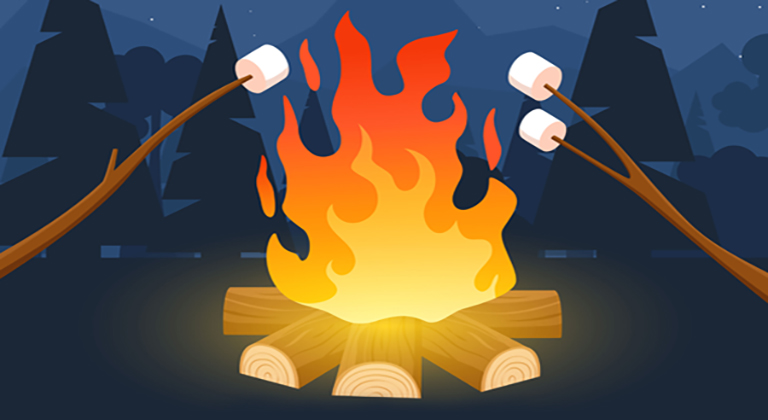
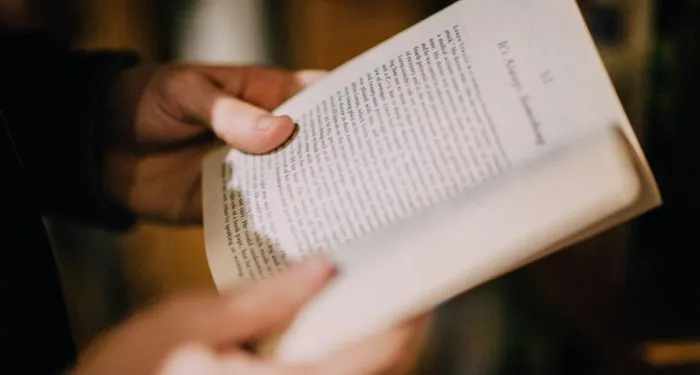
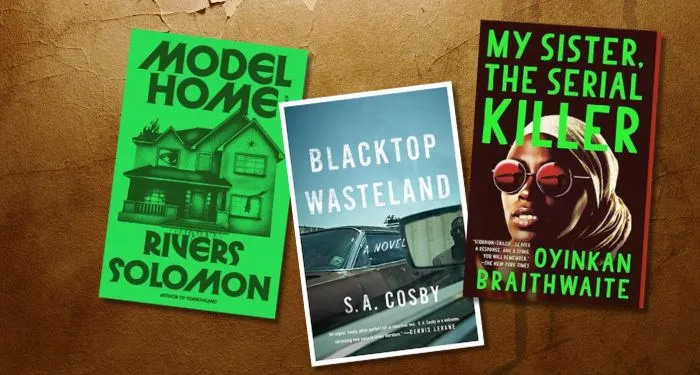
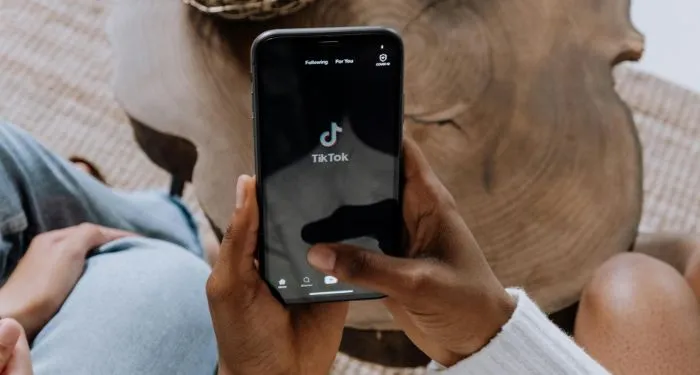


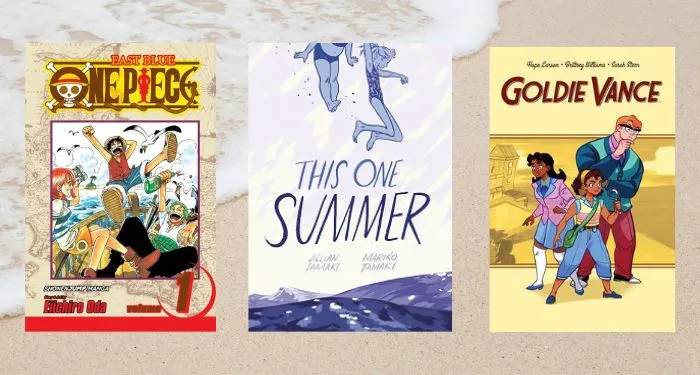
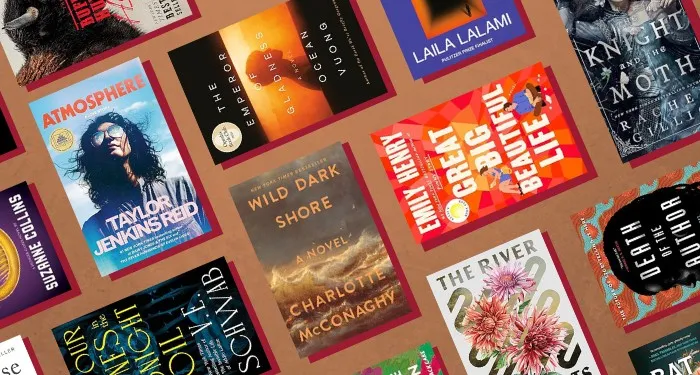
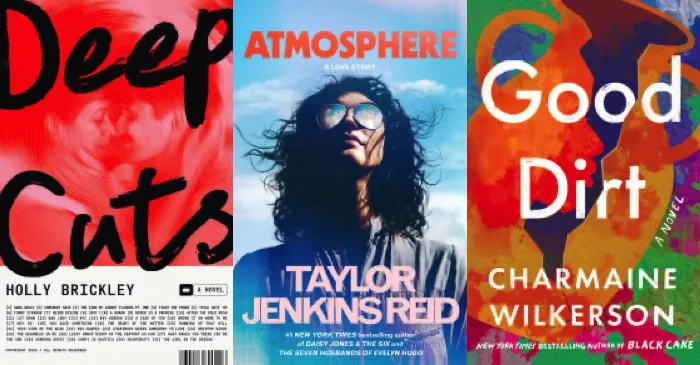

 English (US) ·
English (US) ·